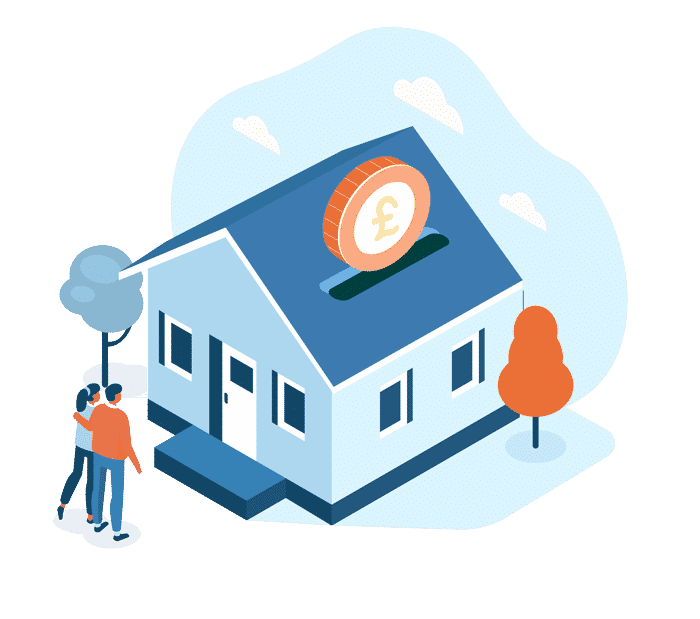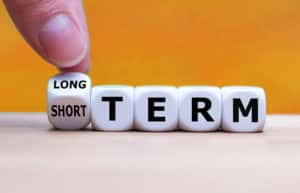How To Get A Mortgage
We’re a fee-free mortgage broker covering the whole of the UK, offering free mortgage advice and support service.
YesCanDo mortgage advisors do it all for you! The advice, the application, all the paperwork, the bank and solicitor chasing, and take away the stress. Plus we’re fee-free.
Home » How To Get A Mortgage
- A TREE PLANTED FOR EVERY MORTGAGE
Ask YesCanDo for free mortgage advice
At YesCanDo we take time to understand your individual needs and situation. We will
search the whole mortgage market to find you the best rates and deals for your property
goals.
The best part? We’re a fee-free mortgage broker!
What Is A Mortgage?
A mortgage is a loan you use to purchase a property. There are more than 100 lenders in the UK and comparing them all can be very time consuming without the right tools. YesCanDo Money are a fee free mortgage broker that can help you find the right lender for your particular needs. This will save you both time and money. Not sure what a mortgage broker is?
You will need to pay back the mortgage loan in instalments. These payments will include the interest on the loan. The amount of interest you pay will depend on:
- The type of mortgage you choose
- The length of your mortgage
- The size of your deposit
- Current market rates
- The level of risk the lender has to take when giving you the mortgage
You pay back the mortgage over a number of years although you don’t have to stay with the same lender.
As mortgages have a reduced rate for a set time period, many people decide to switch to another mortgage lender if they can secure a better deal after that period has ended.
Switching lenders is called remortgaging, learn how to remortgage here.
How to Prepare for a Mortgage
Preparing for a mortgage in the UK requires having an organised plan, which can increase your odds of securing more favourable terms. Here is how you can prepare, using the concept of deposit rather than down payment:
- Check Your Credit Score Your credit score plays a pivotal role in the mortgage application process in the UK, affecting lenders’ decisions about whether and at what interest rate to offer. Obtain your report from major UK credit reference agencies (Experian, Equifax and TransUnion) in order to identify any errors and where there may be opportunities to improve it. Checkmyfile offers a free credit report >
- Reduce Your Debt: Lenders evaluate your debt-to-income ratio (DTI), which measures your total monthly debt payments divided by gross monthly income. A lower DTI ratio makes you more appealing to lenders, and paying off outstanding debts such as high-interest loans or credit cards can improve mortgage terms.
- Save for a Deposit: Mortgage deposits are an upfront payment that goes towards purchasing your home; your mortgage covers any additional costs. Your deposit size has an impactful effect on both mortgage interest rate and approval odds – larger deposits of 15-20% of home’s price may secure more favourable mortgage terms and rates; but options exist even with smaller deposits.
- Prepare Your Financial Documents: In order for lenders to assess your mortgage application, lenders require various financial documents including payslips, bank statements, proof of bonuses or income, tax returns if self-employed as well as your most recent payslip. Having these ready can make the application process faster.
- Explore the Mortgage Market: The UK mortgage market is vast, offering various products. Do your research or consult a mortgage advisor in order to gain an understanding of all of your available options, such as fixed-rate, variable rate and tracker mortgages – then decide which best meets your needs and financial situation.
- Be Aware of Mortgage-Related Costs: Understanding the Fees for a Mortgage when buying a property involves is vital. These costs are such things as stamp duty, valuation fees, surveyor fees and solicitor fees. Be sure to include these expenses when planning out your budget alongside your monthly mortgage repayments.
By following these steps, you can present yourself as an attractive candidate to lenders and navigate the UK mortgage application process more smoothly.
How To Get A Mortgage
Getting a mortgage can be a complex process, and it varies slightly depending on whether you are a first-time buyer, remortgaging, moving homes, or buying to let. Here’s a general outline of the process, broken down into 10 steps, along with notes on how it might differ for each type of buyer:
Step 1: Work out how much you may be able to borrow
Before you start house hunting, it’s important to work out how much you can borrow.
This will help you narrow down your house search when you’re looking at properties.
It’s also important to consider how much you can realistically afford to borrow.
To work out how much you may be able to borrow, you could use one of many mortgage calculators. You don’t need to do this as a broker can work out all these figures for you. Speak to one of our mortgage advisers for free advice.
After finding how much you may be able to borrow, you should add up all the other costs that relate to the mortgage application and your house move. Such costs include:
- Stamp duty
- Appraisal fees
- Legal costs
- Application fees
Many brokers charge a broker fee. At YesCanDo Money, we strive to be a fee free broker. That is why we do NOT charge a fee on 9 out of 10 cases. We compare mortgages from the whole market to find you the best available rate and deal.
We will help you add up all of the costs related to your house move and will give you a more accurate figure than a mortgage calculator could.
You should also consider knowing how much your household bills will increase before buying a new home.
We have more advice here: How much mortgage can I get?
Step 2: Get a mortgage in principle (MIP)
Getting a Mortgage in Principle is always recommended. It is a document given to you by your lender or a broker that lets you know how much you could borrow, in principle.
A broker or lender will look at your income, credit commitments and other outgoings to check your affordability for a mortgage. Once you have chosen a mortgage product, we will secure the agreement in principle.
The MIP isn’t a legal document. The lender could still refuse the mortgage on the terms they have set out, but it is a useful indicator of how much you may be able to borrow.
The Mortgage In Principle will:
- Give you a better idea of what houses you may be able to afford
- Show any estate agent that you’re a serious buyer with proof of a mortgage loan
YesCanDo Money can create and provide the MIP for you within 24 hours. Get in touch with us to learn more. Speak to us before applying for a mortgage with a high street bank or building society.
The MIP is also known as an ‘agreement in principle’ or even a ‘decision in principle’.
We have more advice here: How to get a mortgage in principle.
Step 3: Get house hunting
When you know how much you may be able to borrow you can begin house hunting for the property you want to buy. Popular websites to consider include:
You don’t need to hurry the house hunting process as it’s important to find the right home for you. However, it’s worth noting that MIP’s last for between 30 and 90 days. If you haven’t found a property in that time, you will need to re-apply for another.
Step 4: Choose your best-suited mortgage
Different types of mortgages are available in the UK. These include:
- Fixed-rate mortgages
- Help to Buy mortgages
- Buy-to-let mortgages
- Capped mortgages
- Small deposit mortgages
- Discounted mortgages
- Offset mortgages
- Tracker mortgages
We explain in more detail about the different types of available
Interest-only mortgage
Interest-only mortgages pay only interest on the loan and nothing off the capital. Lenders and regulators are worried about homeowners being left with a huge debt. These mortgages are becoming harder to come by. You will have to have a separate plan to repay the original loan at the end of the mortgage term…. interest types here > Best Mortgage Rates
We will explain Fixed-rate mortgages below as this is the most common type of mortgages.
Fixed-rate mortgages
Considered the most common type of mortgage interest rate is the fixed-rate mortgage. As the name indicates, a fixed-rate mortgage has a fixed rate of interest for a set period of time. This mortgage term tends to vary between two and ten years, however, there are some deals where a longer term is available.
The main advantage associated with this type of mortgage is that you have the peace of mind that you are going to be paying the same monthly payment every month for the fixed period/term. Make sure you get advice from a mortgage adviser before you pick one of the many fixed-rate mortgages with a long term. Having to stop a fixed mortgage rate because you are moving home or wanting to change your mortgage can be very costly sending on your financial situation.
Contact your broker or lender when the seller accepts your offer to begin your mortgage application. Going direct to a lender such as a bank will restrict your access to the whole mortgage market as they will only offer you their mortgages.
At YesCanDo Money, we can search the whole market and help you find the best mortgage for you.
Step 5: Find a solicitor
A solicitor will handle the legal aspects that relate to buying and selling a property.
You should choose a solicitor as soon as you have agreed to an offer.
To find a solicitor:
- Ask for recommendations from friends and family members
- Read their online reviews
- Speak to a broker for advice
Your lender might recommend a solicitor to you but you do not have to use them.
We have more advice here: How to find a conveyancing solicitor.
Step 6: Apply for a mortgage
When it comes time to apply for your mortgage, give your mortgage broker the documents they need to begin the process.
As well as your bank statements, they will need documents that give proof of your ID, address, and income. Such documents can include:
- Tax returns
- Payslips
- Passport
- Driving licence
- Gift letters
Contact us to learn more.
Step 7: Get a valuation
Your lender will ask for a valuation to check that the property value matches up with what it was valued it by yourself or the estate agent.
This valuation will be carried out by somebody with surveying experience. Some lenders will ask you to pay for the valuation as one of your mortgage fees.
After the valuation, they will decide how much to give you for your mortgage.
If the lender offers you a mortgage at less than the buyer’s asking price, you can either:
- Source the rest of the money needed elsewhere
- Renegotiate with the seller
- Find a different lender
Speak to a broker if you would like a more detailed survey done.
Step 8: Get your mortgage offer
When you get your mortgage offer, you are finally on the way to securing your new home. Once you have the offer, it is usually valid for between 3-6 months.
The mortgage offer will be given to you after:
- You have successfully completed your mortgage application
- The valuation report has been completed
If you are happy with the mortgage offer you can accept and sign it. Your solicitor will then start the final phase of the buying process, including the exchanging of contracts between you and the house seller.
If your application is initially declined, your journey isn’t over. It might be that you didn’t meet the lender’s lending criteria. A mortgage broker will help you find a more suitable lender.
Step 9: Exchange Contracts
This is where you seal the deal between you and the house seller.
Both yours and the seller’s solicitors will exchange contracts. All you need to do is sign yours.
After contracts have been exchanged, a date will be agreed for receiving the keys to your new home.
Step 10: Move into your new home
Here’s the exciting part!
You can move into the home on the agreed date and begin the next chapter of your life. Hoorah!
Best Mortgage Rates
As you study the mortgage rates table below, keep in mind that interest rates are affected by average property prices and other factors. With over 90 lenders and 14,000 mortgage products to choose from, it can be daunting finding your ideal rate – to ensure you secure it as easily as possible, reach out to YesCanDo Money’s experts for personalised assistance and fee-free advice!
Mortgage Calculators
It’s also important to consider how much you can realistically afford to borrow.
To work out how much you may be able to borrow, use the mortgage calculator below. When you’re ready speak to one of our mortgage advisers for free advice, get in touch.
For a more detailed and personalised mortgage affordability, use our Mortgage Affordability Calculator here >
Other Mortgage Pages:
Frequently Asked Mortgage Questions
How long does it take to get a mortgage?
You can be approved for a mortgage anywhere between 2-6 weeks after your application. If your application is complex, it can sometimes take longer. This might be because the lender has to look further into your credit file history. Or they may need to confirm certain details with you. If the lender has a backlog of mortgage applications, this can also be the reason why your application is taking longer.
How much mortgage can I borrow?
You can usually borrow between 4-5 times your salary. Each lender has different rules and they can take each application on a case-by-case basis. The size of your deposit will also make a difference to how much mortgage you can borrow.
We go into more detail here: How much mortgage can I get?
How much does a mortgage cost?
Your monthly repayments will depend on the interest rate of the mortgage loan. If you don’t pay mortgage fees upfront, these will also be added to your monthly repayments.
Fees can include:
- Arrangement fees
- Application fees
- The valuation fee
- Conveyancing fees
You will learn more when using a mortgage calculator, although a mortgage broker will also break down the cost of your repayments with you.
What is stamp duty?
Stamp duty is land tax and how much you have to pay will depend on the location of your home and how much you have paid for it.
After the home loan, stamp duty is the second biggest cost of buying a home.
What are the best mortgage types?
Mortgage types include:
- fixed-rate
- variable rate
- interest only
Fixed-rate loans are often best for those who decide to stay put for many years. Variable-rate mortgages are riskier than fixed-rate loans as the interest rates can change but are sometimes useful for those who plan to refinance their loan in the near term. With an interest-only mortgage, monthly repayments are usually smaller.
At YesCanDo Money, we will discuss each mortgage type with you and help you make the decision that is right for you.
How do I get the best mortgage deal?
The best mortgage deal depends on your personal needs and your financial situation. It can be hard to choose as there are many different lenders out there. However, at YesCanDo Money, we have access to every rate and deal in the UK. No matter your situation, we can help you acquire the mortgage deal that is best for you, with the rates that you can afford.
Who are the UK’s best mortgage lenders?
There are around 90 different lenders in the UK. Some you will find on your local high street and some of which can be found online.
There is a handy guide on who the best lenders are at Which.
Please note: We have access to lenders who may not be as well known as some of the UK’s biggest lenders, but who may be able to offer you better deals on your mortgage.
How much deposit do I need to buy a house?
The house deposit is the price you pay before you begin paying your mortgage. It is the percentage of the total house price and is usually 5% of the final cost. The bigger deposit you put down, the lower your monthly mortgage repayments are likely to be.
Due to the coronavirus pandemic and the economical disruption, lenders were not offering below 10% deposits. To get the economy back and running the government has backed 5% deposits. This allowed more lenders to offer 5% deposit mortgages (95% mortgages) to their customers again as the government act as a type of guarantor.
This has created a surge of first time buyers trying to get on the property ladder. So much that properties are being sold subject to contract within hours of being put on the market.
Get in touch with a specialist first time buyer mortgages
What is remortgaging?
A remortgage is the process of paying off one mortgage with another. You can start looking for a remortgaging deal before your initial deal ends. This is sometimes cost-effective, as once your deal ends and you move onto your lender’s SVR (standard variable rate), your monthly mortgage repayments will usually be higher.
By applying for a new mortgage before your current deal ends, you will be able to benefit from one of the lower interest rates currently available.
Contact us for free expert remortgage advice with access to the best mortgage rates and mortgage deals.
Will my credit report affect my mortgage application?
We always recommend completing a credit check of your credit report
The higher your credit score, the greater your chances of a successful mortgage application. If you have a poor credit rating, the lender will perceive you as a risk, and your application might be rejected. Before you make your application, check your credit file with a credit reference agency. Some of the most popular free credit reference agencies are Equifax or Experian and follow the advice at Bankrate to improve it.
Speak to us if you have any concerns.
Is a mortgage 4.5 times your salary?
It is possible that you will be able to borrow 4.5 times your salary and possibly even 5 times your salary if you’re a professional. This would be based on you having no debt and an average UK salary or higher.
In this guide, we go further into how the different banks and building societies calculate how much you could borrow. We will also focus on how you can turn this to your advantage to maximise your borrowing potential.
Do I need Life Insurance?
The answer to this comes from another question; Could you afford to maintain your current lifestyle if you or your partner were suddenly gone? In most cases, the answer will be no. So is Life Insurance worth it? Yes!
Losing a whole person’s income can have devastating effects on a household both mentally and financially. If you couple that with the emotional strain of losing someone, life can quickly take a downward spiral.
Our protection advisers are passionate about making sure that you and your loved ones are protected.
Life insurance is not as expensive as you might think and having the right amount of cover is essential.
Get a mortgage with the help from YesCanDo
- Mortgage suport and advice throughout
- We submit the mortgage application for you
- Team of expert online mortgage advisers
- Amazing communication via WhatsApp, email and SMS.
- Access to the whole residential mortgage market

Proudly Boasting a 5-Star Trustpilot Rating
Our clients’ satisfaction speaks volumes about our service quality. YesCanDo Money is proud to have earned a 5-star rating on Trustpilot, reflecting our dedication to providing top-notch, personalised mortgage advice and services. We take pride in our commitment to excellence, ensuring that every client receives the best possible guidance and support.
SPEAK TO A MORTGAGE ADVISOR
Let us know what the best time is for us to call you. We will get one of our mortgage advisors will be in touch to talk through your situation and available options.
OR FILL IN OUR FORM
"*" indicates required fields






